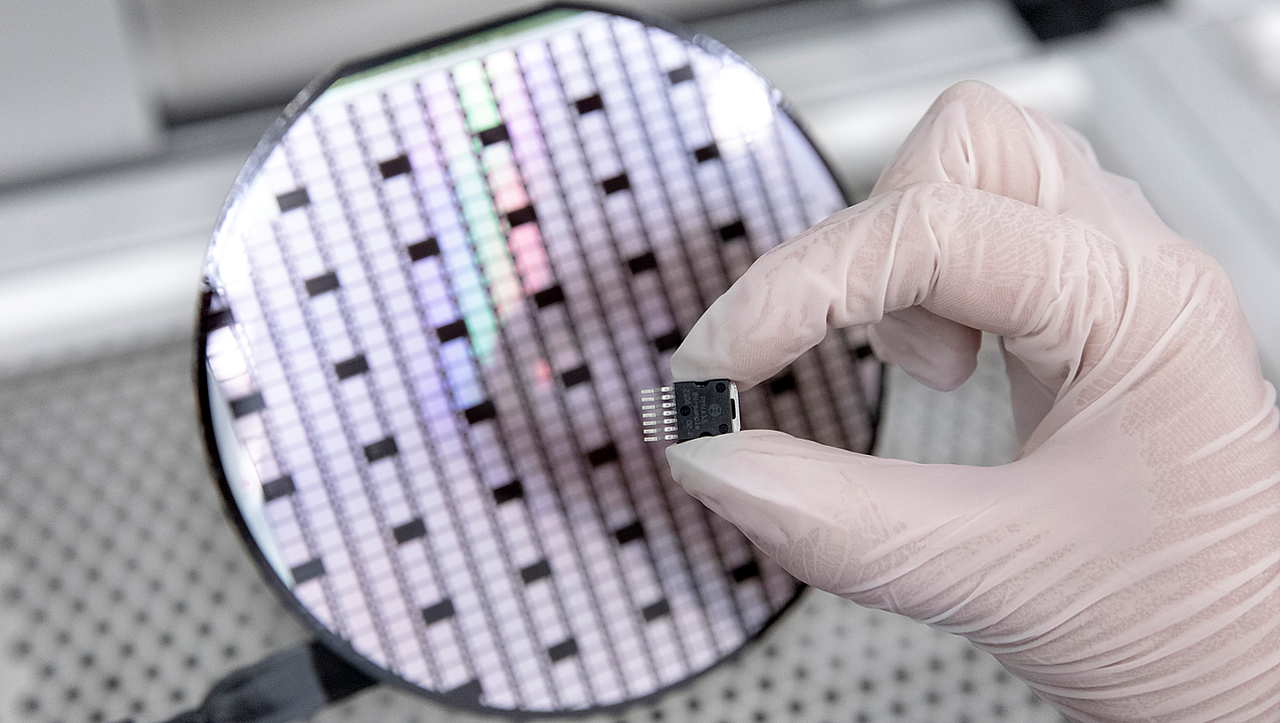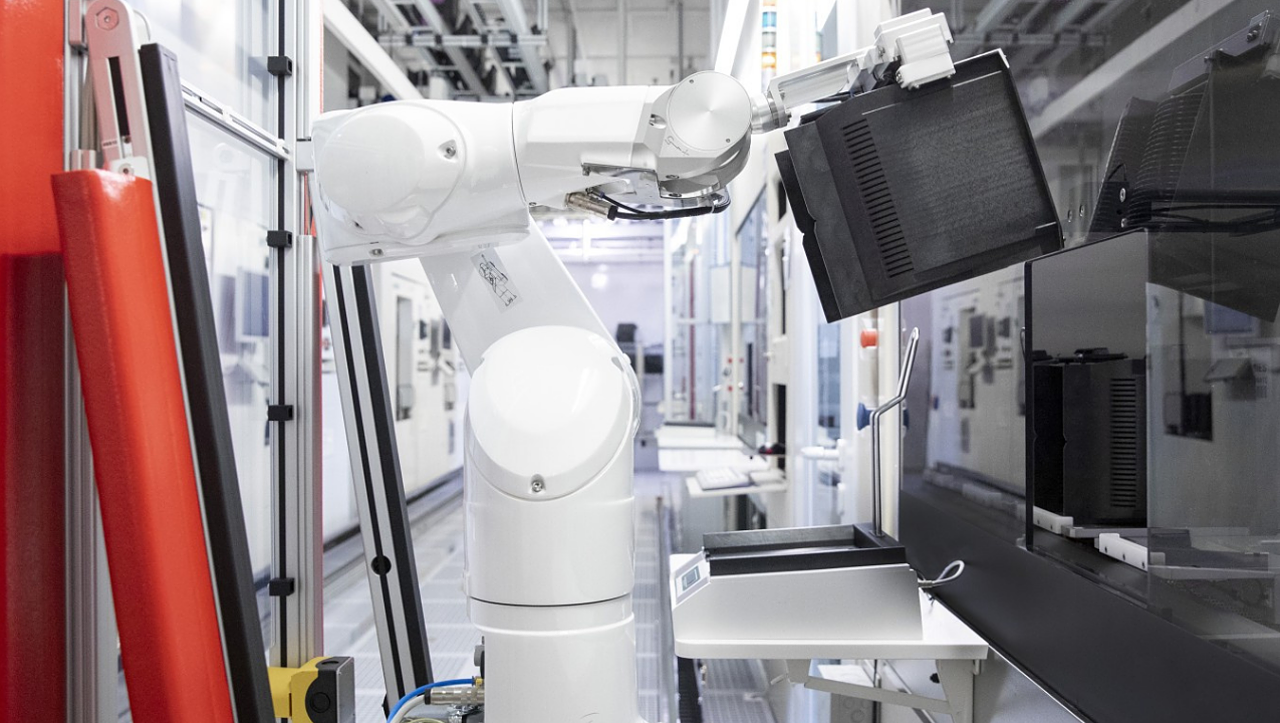
A few days ago, the leading global supplier of technology and services, Bosch, announced the commencement of its volume production of power semiconductors made of this innovative material – Silicon Carbide (SiC), for supplying automotive manufacturers worldwide.
It may be recalled that a couple of years ago, the company had announced that it would push ahead with the development of SiC chips and enter production. Towards this, it developed its own highly complex manufacturing processes, which it has been using to produce the special semiconductors since the beginning of 2021 – initially as samples for customer validation.
In the face of the global chip shortage, Bosch increased its capital expenditure by announcing € 400 million on October 29, 2021. The investment planned for 2022 alone will go into expanding its wafer fabs in Dresden and Reutlingen, Germany, and its semiconductor operations in Penang, Malaysia. The announcement came just a few weeks after opening its new wafer fab in Dresden.
Making the announcement Dr Volkmar Denner, Chairman of the board of management of Robert Bosch GmbH, said, “Demand for chips is continuing to grow at breakneck speed. In light of current developments, we are systematically expanding our semiconductor production so we can provide our customers with the best possible support.”
Most of the capital expenditure is earmarked for Bosch’s new 300-millimetre wafer fab in Dresden, where manufacturing capacity is to be expanded even faster in 2022. Around € 50 million of the planned sum will be spent on the wafer fab in Reutlingen near Stuttgart in the coming year. Bosch will invest a total of € 150 million in additional clean-room space from 2021 to 2023. In Penang, Malaysia, Bosch is also building a test centre for semiconductors from scratch. Starting in 2023, the centre will test finished semiconductor chips and sensors.
Thanks to the boom in electromobility, the company is happy as the order books are full.
In the future, Bosch intends to expand its production capacity for SiC power semiconductors to a unit volume running into the hundreds of millions. With this in mind, the company has already started developing the clean-room space at its Reutlingen plant.
Harald Kroeger, Member of the Board of Management of Robert Bosch GmbH, said, “The future for SiC semiconductors is bright. We want to become a global leader in the production of SiC chips for electromobility.”

Second Generation Chips
In parallel, work is also being done on the second generation of SiC chips, which will be even more efficient and should be ready for volume production as of 2022, the company claims. Furthermore, it is receiving support for developing these innovative manufacturing processes for SiC semiconductors from the German Federal Ministry for Economic Affairs and Energy (BMWi) as part of the ‘Important Project of Common European Interest (IPCEI) Microelectronics’ programme.
“For several years now, we have been providing support to help establish semiconductor production in Germany. Bosch’s highly innovative semiconductor production strengthens the microelectronics ecosystem in Europe and is a further step toward greater independence in this key field of digitalisation,” says Peter Altmaier, Germany’s Federal Minister for Economic Affairs.
Growing Demand
Around the world, demand for SiC power semiconductors is rising. A forecast by the market research and consulting company Yole indicates that, between now and 2025, the SiC market as a whole will grow on average by 30% a year to over $ 2.5 billion. At around $ 1.5 billion, the SiC car market is expected to account for the lion’s share.
“SiC power semiconductors make particularly efficient use of energy. This material’s advantages really come to the fore in energy-intensive applications such as electromobility,” Kroeger says.
Powering Electronics
In the power electronics of electric vehicles, SiC chips ensure that drivers can drive significantly further on one battery charge – on average around 6% further than with their pure silicon counterparts. To meet the steadily increasing demand for these semiconductors, an extra 1,000 square meters were already added to the clean-room space at the company’s wafer fab in Reutlingen in 2021. Another 3,000 square meters will be added by the end of 2023. Using in-house processes, the new space will house state-of-the-art production facilities for manufacturing SiC semiconductors.
Bosch’s semiconductor experts are building on their decades of expertise in chip manufacturing to achieve this. The company – incidentally the only automotive supplier to produce its own SiC chips – plans to manufacture the semiconductors on 200-millimetre wafers in the future. (Wafer size refers to the diameter of a wafer and is an essential parameter in the semiconductor manufacturing process. For example, a larger wafer size enables the fabrication of more dies per wafer which translates into cost reduction in high-volume manufacturing, which is a key determinant for the automotive industry.
Compared with today’s 150-millimetre wafers, this will deliver sizeable economies of scale. After all, it takes several months for a single wafer to pass through several hundred process steps in countless machines.
“By producing on larger wafers, we can manufacture significantly more chips in one production run and thus supply more customers,” Kroeger says.
Big Impact Of Small Atom
The secret behind SiC chips’ performance lies in a tiny carbon atom. Introducing it into the crystalline structure of the ultra-pure silicon generally used to manufacture semiconductors gives the raw material unique physical properties; for example, SiC semiconductors support higher switching frequencies than pure silicon chips.
In addition, they lose only half as much energy in heat, thereby increasing the range of electric vehicles. The chips are also crucial for 800-volt systems, enabling faster recharging and better performance. Since the SiC chips also emit significantly less heat, the power electronics require less in the way of an expensive cooling system.
In addition to weight, this is another way to reduce the cost of electric vehicles, Bosch said. In the future, the company will supply SiC power semiconductors to customers worldwide – both as individual chips and installed in power electronics or complete solutions such as the e-axle. This combination of an electric motor, gearbox and power electronics achieves an efficiency of up to 96% due to the more efficient design of the overall system. This leaves more energy for the powertrain, which increases the range.
Therefore, more and more production vehicles will feature chips made by Bosch in the future, easing vehicle production besides offering more energy to the powertrain and enabling a more extended range in the case of EVs.